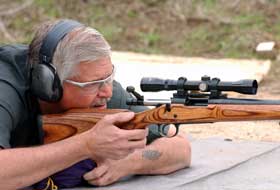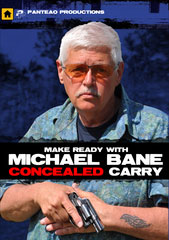 In decades of hanging around writers, and in the course of 20 non-fiction books and one novel myself, I think I've isolated the one thing a writer more than anything else wants — to make a difference.
In decades of hanging around writers, and in the course of 20 non-fiction books and one novel myself, I think I've isolated the one thing a writer more than anything else wants — to make a difference.Yeah, there's no shortage of ego in pages...and I am not without that particular sin...but, ultimately, you believe, or at least hope, that the stones you throw into the pond will create some ripples.
Ironically, I never thought that about OVER THE EDGE. OTE was a whim that became an obsession, my very own personal white whale. Here's the short version for those of you who just tuned in...over beers at a pizza place in Tampa after a day of windsurfing big wind, my friends and I wrote "The List," a.k.a., 13 things that can kill you, on a cocktail napkin.
The List ended up:
1) Windsurf really big air — what the hey...I figured I could do this...At closing time, the questions was asked, "So, Michael, what are you going to do with The List?"
2) The Mammoth Mountain Kamikazee mountain bike downhill — I'd read that based on the sheer number of injuries, the Kamikazee was the most dangerous sporting event in America.
3) Escape from Alcatraz triathlon, featuring the signature swim from Alcatraz to the mainland — I liked the country song, "There's a mile and a quarter of trecherous water that keeps men in Alcatraz..."
4) Jump a kayak off a waterfall — Seemed like a good idea about pitcher #3.
5) Rock climb — Hanging frm ropes...always a good thng!
6) Cave diving — Scuba diving in caves, around pitcher #6, because a friend of mine remembered seeing on television how many people died doing it.
7) Ice climbing — How hard can it be to climb an icicle? Ha!
8) Skydiving — And I lumped "those parachute thingies," wich I later learned were called paragliders or parapentes into that as well.
9) An 85-mile Rollerblade marathon — I thought I'd at least meet cute girls in pain.
10) Scuba diving "really deep" — Ignorance is bliss...I thought I could get to, say, 500 feet down.
11) "Badwater" Run Across Death Valley — Only 120 degrees...hey, I lived in Florida!
12) Iditasport Bike Race on the Iditarod Trail in February — I figured it would balance out Death Valley pretty well.
13) Climb Mt. McKinley — After all, it looked really pretty in the Ansel Adams photograph, whicih was as close as I had come to a Big Mountain.
"Oh I don't know," I said, perhaps tracking at less than 100%. "I think I'll do everything on the list and write a book about it."
And there you are...5 years later, all the money I had in the world and one 20-year relationship slagged, I finished The List.
The most amazing thing to me is that OTE has gone on without me. The hardback came out in the late 1990s, with te paperback in 2000...every month, without fail, I get e-mails from people for whom my book was a life-changing experience. Some of the stories are touching...a picture from the North Pole, a momento from the Olympics...some are heartrending, people struggling to overcome staggering odds in their personal lives, with OTE as a guidebook. I am, as I have said many times before, both honored and humbled. It is cliched to say it is a dream come true, but that doesn't make it any less of an honest emotion.
From the beginning, I wanted to quantify the concepts I used to complete the challenges I wrote about. This proved to be MUCH harder than I'd anticipated...it forced me to start "peeling away the layers" of my mental onion. It also kept me in the field doing yet MORE stupid stuff, because I am sort of stupid...it's deeds, not words. Hell, if I am going to give you advice that you may stake your life on, then I am obligated to stake my own life on those ideas. That guarantees that I am the first, and hopefully only, victim of my own mistakes.
I even tually come up with six key points, which I cleverly labeled Six rules for Accomplishing the Impossible:
1) Pick a Summit — We don't live the lives we want to live not because we aim too high, but because we aim too low. We want to run a marathon, so we tell the world we're training for a 5K...and then we don't do that. Summits have power; summits can cause us to engage those amazing evolutionary tools we all possess. Summits are creatures of dreams.Read Bruce Lee's classic text on The Tao of Jeet Kune Do...or Mark Twight's Extreme Alpinism...or Brian Enos' Practical Shooting-Beyond Fundamentals. We triumph not by following the well-worn path, but by abandoning "common sense" and opening ourselves to the maelstrom. Heaven help me, but I'm going to close with a quote from Alannis Morisette: "The moment I stepped off it it/Was the moment I touched down."
2) Abandon your Comfort Zone — Comforts zones are cozy little cells with padded walls; comfort zones are death in bite-sized easily digestable chunks. We are hard-wired by several million years of evolution to do our best work outside our comfort zones. The odd thing is that once you're out of your comfort zone, it's not so bad. In fact, you get used to it.
3) Understand the Risks — We are TERRIBLE at analyzing risks! And we think we're great at it, which is a classic recipe for disaster. From my earlier post, remember "perceived" versus "actual" and "subjective" versus "objective?" I have seen huge amounts of resource focused on "perceived/objective" risks...essentially preparing for an imagined, completely unlikely eventuality that, if it did happen, you couldn't do anything about it in the first place.
4) Narrow Your Focus — Okay, this is kind of a trick...yes, you have to understand the "big picture," but once you do, forget it and focus on what it is you need to do RIGHT THEN. I go back to the old analogy (used interestingly enough by John Shaw to teach SAS guys how to REALLY shoot) that at birth we are all issued 100 pennies-worth of concentration, and no matter how much we might believe otherwise, we cannot get one penny more! Rather than putting a nickel here and a quarter there, to survive, we have to learn how to be a serial concentrator, taking our pile of pennies and moving it all from task to task.
5) When In Doubt, Go FASTER! — This is one of the most controversial points, because we are trained by our culture that slower is better...."slow and steady"..."tortoise and hare"...etc. It's the wrong worldview. Yes, we plan, and yes, we pay attention to details, but once we start, move dammit! Insteresting new reseach that backs up my thesis that we can make correct decisions with blazing speed. When we say we need more time, often what we are saying is really, "We need more time to cook up a dreally good excuse!"
6) Embrace Chaos — At the edges of the Known Universe, cause and effect become merely "local phenomena." You survival depends on your ability to shift gears, move out of one paradigm into another, real quick. Our current culture places a high value on the question, "Why?" As in, "Gee, I wonder why that didn't work..." as in the closing words of your life. "Why" is only interesting if it can teach you something for the next time, and that implies you'll survive the present encounter, which you can only do by ignoring the "Why." When you're in a chaos system — and Nature, violent attacks, combat, pesky hurricanes, etc. are ALL classic chaos systems — nothing proves anything! "Proof" is a specific scientific term, and it doesn't have a damn thing to do with the Real World. Within a chaos system, events tend to be "singularities," that is, the one-time-only product of known, unkown and unknowable factors and conditions. Remember, cause and effect have gone south here.






11 comments:
Michael,
I see that Cowboys was renewed over at the Outdoor Channel website. What about your other show/s?
http://www.outdoorchannel.com/_newsreleases-one.cfm?site=1&SectionID=4&SS=131&t=7&NewsID=411&Page_Mode=News_releases#411
Michael: This is going to sound really stupid or condenscending, but a lot of what you list applied to many of us trying to stay in farming during the hard-time eighties. How else do you think I became a gunwriter? I had to do something and it seemed so ridiculous at the time, but it worked. Your methodelogy applies to more than you think.
All The Best,
Frank W. James
Well, I did go out and get the mail today...
Glad most of you is still there. When will we see you at a Colorado gun show?
OldeForce
Good stuff! Practical and original, even if others (e.g., Mr. James) have practiced some form of these principles before.
However, I became a bit lost on 6) Embrace Chaos. I believe I understand the last half of the paragraph, but not how it ties in with the first half and the other five points. Are you saying not to depend on strict adherence to sets of rules, but remain more fluid and spontaneous and open to follow one's gut feeling or inspiration? Or not to become married to any rule set? Maybe I've hit upon it: Go with what seems to be working and don't get hung up on seeking an explanation?
Sorry for the confusion...trying to cram a lot of potatoes (some would say "horse-pucky") into a small sack.
You're absolutely on target with your interpretation of "Embrace Chaos." "Plan your work and work your plan" works just fine in normal circumstances. But when we find ourselves in what I think of as a "chaos event" — an event with so many known and unknown factors contributing to the situation that we can't truly know what's going on — survival depends on mental flexibility. I believe you have to train your mind to be open to the widest range of options and train accordingly...like Bruce Lee's comment that style, as in a specific style of a martial art, is an impediment, but that insight is only available after you learn the style.
On one 240-ft deep dive in a Florida cave (on air...stupid me), I got sick...the whirlies, barfing, the whole nitrogen package. I was able to pull myself together using a focus technique I'd learned from ice climbers. Whatever gets you home...
I think as a culture we tend to be far too focused on intermediate goals, a very deterministic step-by-step path, wheer you execute each step successfully before moving on to the next step. My 12 step recovery program from engineering, for example. I believe that not only are successes and failures at the intermediate stages a poor predictor for success at the actual event, but that an intense intermediate stage focus is actually an impediment to that success.
Let's look at my old and dear friend Frank James, whi transitioned from bean farmer to gun writer. I've known Frank since he started that transition (in fact, when I first got a call from this bean farmer guy who asked me how to become a writer, I thought it was some whacko stalker). The key point is that Frank NEVER ONCE lost focus on the summit, the ultimate goal — becoming a gun writer. He simply rolled over the intermediate failures — and successes — while keeping his mental eye on the ball.
This is MUCH harder than one might initially think. It requires one to ACCEPT other people's training/expertise while ignoring their advice. I suspect 100s of people explained to Frank in minute detail that his goal was unobtainable, questionable or downright silly.
What we're talking about here is asymmetrical thinking (hey, that'd amake a hell of a title for a book, if I could sell it); everyone talks about "thinnkin outside the box" — what I've developed (or stolen from people smarter than me) is a "toolbox" for doing exactly that.
Most people choose a goal, then begin a meticulous ANALYSIS to examine wht they can't accomplish that goal...they don't intend to go down that path, but that's where their ANALYSIS leads them. I tend to follow Einstein's offhand comment that SYNTHESIS, the opposite of analysis,. is the high art. The act of synthesis — essentially answering the question of how is this whatever SIMILAR to that whatever — allows us to see the non-linear paths to our goals.
This is the thought process I used to create SHOOTING GALLERY and COWBOYS, as well as get my butt up Mt. McKinley and down 400-feet into the black. It's also the same set of tools that has allowed me to walk away from some very scary situations...they WORK!
RE: SG, it'll air right after COWBOYS with G&A and Shooting USA in the Wednesday shooting bloc on the usual 13 original/13 repeat season through 1 July. I'm presently in negotiation beyond that, and I WILL keep everyone informed...
mb
Michael: Farming in the 80's was so bad I knew I had to do something so initially I decided to become gunwriter not because I believed I was good enough or even could, but I believed the exercise would prove so difficult that it would take my mind off the chaos surrounding the farms during the droughts, the years of loans with interest rates over 20%, low prices, along with a number of other disasters.
I approached the whole thing as this big huge puzzle that I probably wouldn't solve, but it would take my mind off other things that were distracting my "rational" thoughts.
The truth is, unknowingly, I applied the very process you have just described because everyone, and I mean EVERYONE, thought I was nuts and they believed the situation was getting to me. The real surprise is soon after I talked to you that first time things started to happen in my favor and you have to understand that was NOT the story anywhere else in my professional endeavors.
I heartily endorse your chaos theory of management.
All The Best,
Frank W. James
Michael, I said it before...OTE is the reason I'm reading your blog right now. It's my Bible and Constitution.
I think it's something about that title "A regular guy's odyssey..." That's it...regular.
I have done some pretty awesome things since I first read OTE.
I've been to Honduras...in fact, i went on a sort of safari along the Cangrejal river.
I've run in several triathlons, mountain bike races and even a Balance Bar sprint adventure race.
I left quite a bit of skin on the street rollerblading to work one day
And at the ripe old age of 35, I got the notion in my head to see if I had it in me to join the Nat'l Guard and be an infantryman. Back then, the cutoff age was 36 and it was looking like it might be one of those things I'd forever regret not doing.
It hasn't been easy, and 90% of the time its not even fun. But there's something about stepping out of that comfort zone...its about taking chances, exploring who you really are, and just plain living. Every body dies, but not everybody truly lives.
I write this now from Farah, Afghanistan where I am once more testing my limits. My battered and well-read copy of OTE is right here by my desk.
Thanks for blazing the trail.
yeah truly a great site.I really enjoyed my visit.
Wow that picture is amazing, I dont know if it is edited or original, but either way it is an awesome one.
Goodness, there is a lot of worthwhile info above!
www0731
christian louboutin outlet
moncler outlet
coach outlet online
ugg boots clearance
off-white clothing
coach outlet
true religion outlet
pandora
oakley sunglasses
canada goose outlet
Post a Comment